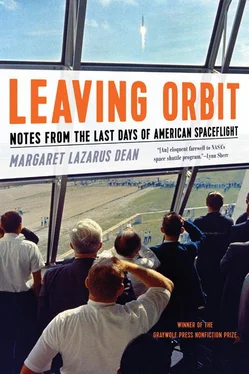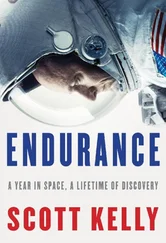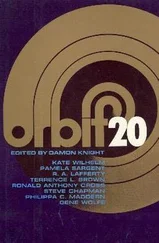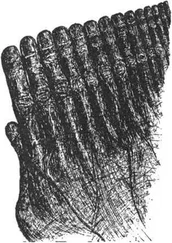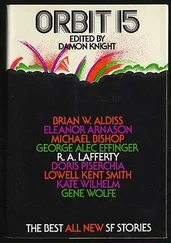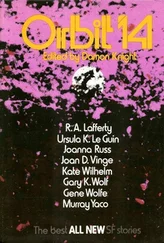Hickam, Homer H. Jr. Rocket Boys. New York: Delta/Random House, 2000.
Hough, Richard. Captain James Cook: A Biography. London: Coronet/Hodder and Stoughton, 1995.
Lathers, Marie. Space Oddities: Women and Outer Space in Popular Film and Culture, 1960–2000. New York: Continuum, 2010.
Launius, Roger D., and Howard E. McCurdy, eds. Spaceflight and the Myth of Presidential Leadership. Champaign: University of Illinois Press, 1997.
Lennon, J. Michael. Norman Mailer: A Double Life. New York: Simon & Schuster, 2013.
Lipartito, Kenneth, and Orville R. Butler. A History of the Kennedy Space Center. Gainesville: University Press of Florida, 2007.
Logsdon, John M. John F. Kennedy and the Race to the Moon. New York: Palgrave Macmillan, 2010.
Mailer, Norman. Of a Fire on the Moon. Boston: Little, Brown, 1970.
McCurdy, Howard E. Space and the American Imagination. Baltimore: Johns Hopkins University Press, 2011.
Murray, Charles, and Catherine Bly Cox. Apollo: The Race to the Moon. New York: Simon & Schuster, 1989.
Neufeld, Michael J., ed. Spacefarers: Images of Astronauts and Cosmonauts in the Heroic Era of Spaceflight. Washington, DC: Smithsonian Institution, 2013.
Neufeld, Michael J. Von Braun: Dreamer of Space, Engineer of War. New York: Vintage/Random House, 2008.
Office of the President. Report of the Presidential Commission on the Space Shuttle Challenger Accident. Washington, DC: Office of the President, 1986.
Schmitt, Harrison H. Return to the Moon: Exploration, Enterprise, and Energy in the Human Settlement of Space. New York: Copernicus, 2006.
Shepard, Alan, and Deke Slayton. Moon Shot: The Inside Story of America’s Race to the Moon. Atlanta: Turner, 1994.
Sherr, Lynn. Sally Ride: America’s First Woman in Space. New York: Simon & Schuster, 2014.
Vaughan, Diane. The Challenger Launch Decision: Risky Technology, Culture, and Deviance at NASA. Chicago: University of Chicago Press, 1997.
Verne, Jules. From the Earth to the Moon and Around the Moon. Translated by Harold Salemson. New York: Heritage, 1970.
Weitekamp, Margaret A. Right Stuff, Wrong Sex: America’s First Women in Space Program. Baltimore: Johns Hopkins University Press, 2004.
Winters, Dan. Last Launch : Discovery, Endeavour, Atlantis. Austin: University of Texas Press, 2012.
Wolfe, Tom. The Right Stuff. New York: Farrar, Straus and Giroux, 1979.
It was a privilege to be able to tell this story, and I would like to extend thanks to the many people who helped me to do so:
To Omar Izquierdo and the Izquierdo family for inviting me into their world and letting me write about it. To Chris and Elliot for their support and enthusiasm (and for wearing the T-shirts). To my launch friends, especially Anna Leahy, Doug Dechow, Jen Scheer, Andy Scheer, Stu Maschwitz, Kara Tonolli, Trey Ratcliff, Gordon Laing, Scott Kublin, Christopher Shaffer, Megan Prelinger, Matthew Cimone, and Ryan Kobrick. To Laurel Litzenberger and Stephanie Schierholz at NASA, and to Nancy Glasgow and Andrea Farmer at the Kennedy Space Center Visitor Complex. To the space journalists and the space historians, especially Michael Neufeld and Margaret Weitekamp. To my colleagues in the Department of English at the University of Tennessee, especially Michael Knight, Marilyn Kallet, Chuck Maland, and Stan Garner; most especially to my core committee Katy Chiles, Amy Elias, Heather Hirschfeld, Lisi Schoenbach, and Urmila Seshagiri. To Michael Shum for research assistance. To my colleague Stephen Blackwell for the translation of Tsiolkovsky. To the Tennessee Arts Commission and to the National Endowment for the Arts. To my former professors and classmates at the University of Michigan, especially to Thomas Lynch for encouraging my first efforts in creative nonfiction. To my generous early readers Emily Carney, Christopher Hebert, Omar Izquierdo, Mitchell Lazarus, Jen Scheer, and D’Anne Witkowski. To J. L. Pickering at Retro Space Images. To the staff and my fellow regulars at store #8536. To my students, especially the students who took the time to help me understand what the young people know: Stephanie Ammons, Olivia Cooper, Taylor Goff, Stephen Graves, Benjamin Heller, Anthony Karnowski, Ian Parker, and Stephanie Riggs.
Special thanks to Julie Barer and everyone at Barer Literary. Special thanks to Steve Woodward, Katie Dublinski, Fiona McCrae, Robert Polito, Erin Kottke, Marisa Atkinson, Jeff Shotts, and everyone at Graywolf Press.
Lastly, I want to thank the men and women of the Kennedy Space Center, past and present. Your work made something beautiful come true. May it never be forgotten.
Of a Fire on the Moon , Norman Mailer’s 1970 account of the Apollo 11 moon landing, was the first book I “covered” as a freshman arts reporter for my student newspaper, the Heights , after negotiating Boston’s subway maze from Boston College to Harvard Square one sharp April night to hear him read. Originally a serial in Life, Of a Fire on the Moon would not be published for months, and Mailer read from typescript—a gorgeous sequence about the engineering and metaphysics of the launch, followed by an analysis of the mysterious reverberations of the event for himself, his family, his friends, the nation. There were numerous characters inside the psychic playhouse of Norman Mailer, but at the podium of Sanders Theatre his stance was magisterial—a dazzle of science, history, art, politics, and Manichaeism—his command subtly disconcerting to an audience who mostly was there in anticipation of the legendary bad behavior.
When I was able finally to pore over Of a Fire on the Moon the following fall, I was at home with the worst flu of my life—and my spiking temperature prompted a delirious effect I’ve never experienced again. I found that merely by looking at them I had memorized pages of Mailer’s prose, and at night as I struggled to sleep the sentences wouldn’t stop racing through my head. That his sentences already were speedy, febrile, and unforgettable only intensified my twilight nightmares:
Presumably, the moon was not listening, but if, in fact, she were the receiving and transmitting station of all lunacy, then she had not been ignoring the nation since. Four assassinations later; a war in Vietnam later; a burning of Black ghettos later; hippies, drugs, and many student uprisings later; one Democratic Convention in Chicago seven years later; one New York school strike later; one sexual revolution later; yes, eight years of a dramatic, near-catastrophic, outright spooky decade later, we were ready to make the moon.
My first—literal—fever dreams.
In my Heights piece I strained over otherwise pointless flourishes, such as boxing metaphors, which at that moment must have sounded Mailerish to me. Fortunately for us, Margaret Lazarus Dean in Leaving Orbit: Notes from the Last Days of American Spaceflight shuns such ready-made stylistic traps. Yet as divergent as Dean in 2015 should be from Mailer, Leaving Orbit is haunted by Of a Fire on the Moon , along a resonant personal and historical continuum that ultimately proposes comparisons with such notable contemporary nonfiction classics as Geoff Dyer’s Out of Sheer Rage (Dyer in conversation with D. H. Lawrence) or Nicholson Baker’s U and I: A True Story (Baker in conversation with John Updike). As early on Dean focuses what she tags the “heroic” versus the “shuttle” eras of spaceflight, she confesses her “jealousy” of Mailer:
Читать дальше
